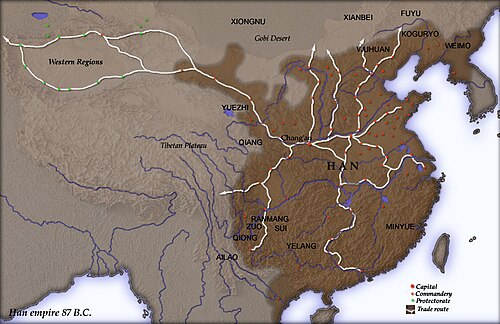| Years |
|---|
| Millennium |
| 1st millennium BC |
| Centuries |
| Decades |
| Years |
| 87 BC by topic |
| Politics |
|---|
| Categories |

Year 87 BC was a year of the pre-Julian Roman calendar. At the time it was known as the Year of the Consulship of Octavius and Cinna and the Second Year of Houyuan. The denomination 87 BC for this year has been used since the early medieval period, when the Anno Domini calendar era became the prevalent method in Europe for naming years.